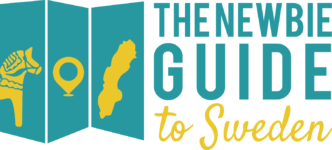Even before we put our foot on Swedish soil we know that we have to acquaint ourselves with the Swedish language. The Swedish for immigrants, SFI courses are the most popular option for newcomers. But what happens after that?
It is slightly over a year since I followed my husband to Stockholm in 2015. While my husband was busy getting the hang of his work and work-place, I was in a state of shock as I suddenly realized that I didn’t have much to do!
The most I could do from my end was to look for job openings in the sector that I had experience in. It was frustrating when I realized that the knowledge of the local language was a must to grab a place in the sector; that is Communications or Public Relations to be specific.
So, the next thing I did was to enroll myself for Swedish classes. The most obvious option was to go for SFI (Svenska för Invandrare).
E-learning course: Your Swedish learning options
Are you feeling a bit overwhelmed about The Swedish stuff? Where can you learn? How does it work? Can you join the different options if you don’t have a Swedish personal number? We’ve got you covered. Over the years we’ve been repeatedly told just confusing this process can be so we created a digital course with all the information you need to make a good decision. Here you will learn about:
- The different study options to learn Swedish in Sweden.
- The differences between study alternatives.
- How much Swedish (and other things) you need for other educational paths in Sweden as well as to work in Swedish.
After finishing this course, you will be able to make an educated study choice and you will learn the most important key words and phrases for studying Swedish in Sweden. Hopefully, Swedish will start making sense!
When SFI isn’t enough
I started studying Swedish and was eager to complete the course and enter the job market soon. So I opted for longer sessions. It took me about seven months to complete all SFI courses. I realized that I could read, speak and write at a basic level. This however, was by no means enough to find a job in Communications!
I had to be very good at communicating in Swedish in all forms, to be able to land a job. I was again restless and anxious. But, that was not going to help. So I gathered my patience and looked for the way forward. And I found myself facing to options.
First option: Svenska som andraspråk, SAS
Svenska som andraspråk, SAS consist out of four courses. One on a base level (grundläggande nivå) and three at a high school level (gymnasium nivå). Each of these levels are 7 weeks long and comes with so called national test (nationella prov) which needs to be passed. The format of this course ensures that by the end of the course one is able to write different types of texts, talk relatively fluently and read and understand complex texts.
SAS is a good option for you who want to study at a Swedish university
The SAS course aims at preparing the newcomers for further studies at universities. So, if one is interested in studying further at any of Sweden’s universities one can opt for this preparatory course. This course is good for people who want to jump into the labor market and hope for finding a suitable job option.
However, I did not choose this option. Instead I went for the other one which is specifically designed for professionals such as engineers, advocates, teachers, economists or other social scientists.
Second option: Swedish for academics and professionals
Stockholms Swedish for academics, SIFA is divided into three different categories.
- SFP (Intensive Swedish for teachers)
- SFINX (Intensive Swedish for engineers and architects)
- SFEJ (Intensive Swedish for economists and lawyers and other social scientists)
This course also consists of base level courses and high school level courses, and comes with two national tests that needs to be passed. However, the difference here is that each level is 9 weeks long. At SIFA we also have one class each week that focuses on job market training specific to our professions.
Special focus on the labour market and needed labour market skills
Each category under SIFA are associated with specific national bodies that help the students find their feet into the Swedish labor market. For example, SFP helps the students for teaching qualifications with their association with Stockholm University, SFINX has a collaboration with KTH (Kungliga Tekniska Högskola) who have a well defined mentorship program for SIFA students and finally the students under SFEJ are appointed mentors through the trade union JUSEK, which is a union of economists, lawyers and social scientists.
So, if one wants to enter the Swedish job market it is advisable to have some patience and equip oneself well enough before taking the plunge.
The two options mentioned above are some of the best ways (that are free of charge!) to find one’s way. This is because both these options provide opportunity to meet professionals from the Swedish labor market alongside enhancing the students’ knowledge of Swedish language. For me the second option fitted best as I have a background in social science and communications.
But you will of course choose what works best for you!
Written by: Surabhi Mishra
A communicator by profession I love to explore different cultures, and the confluence of varied cultures that exists in Sweden makes it the ideal place for me to be in! I followed my husband to Stockholm about a couple of years ago and I have never experienced a single dull moment since. I am thoroughly enjoying my roller-coaster ride here and wish to share my experiences in the due course with everyone.


Hi! Right now I am studying in Sifa under the Sfej course. I really want to know is it really worth it? Did you able to find a job or chance to meet with someone to create a network? I also studied Advertising and Communication in my home town but the course is seem more like for economist to me
Hi Cagla,
I would say that it is worth being at SIFA. Though, I do not have a job yet, I have a mentor who is a great help in building my network. Yes, the yrkestimmar classes at SIFA focus more on economics terminologies, but, their JUSEK program is really worth it. You may want to have some patience and wait for a mentor from JUSEK. It may also be worth trying for unpaid internships to start with! All the best and Merry Christmas :).
Hello Surabhi, nice to find the blog. It has been very useful the reading about SVA – SAS options.
I wonder if the course Cagla is taking is often focusing on economict terms. Would this course SFEJ also tackle social studies for example?
When are the classes every day? for 9 weeks they say. and do one take a National Test?
Hi Silvia,
Good to know that you found the information useful! SFEJ focuses on economists, advocates and social scientists. It is true that most of the terms and concepts that are taught through the course is related to economics and Swedish laws, but these are specific classes that take place only once a week, rest of the days are usual Swedish language lessons with a lot of possibility to learn how to read, write and understand the language better (from jobs market perspective). However, the best part with SFEJ is their association with JUSEK through whom we get a mentor who can guide one to the Swedish job market. For example, I am a PR professional and JUSEK chose a mentor for me from a similar field and this has been of great help to me. You could find more information here ( https://sifa.stockholm.se/intensivsvenska-ekonomer-jurister-och-samhallsvetare-sfej) or you could also visit them!
Hope this helps!
Regards,
Surabhi
Thanks a lot! your comments are very useful. All best, Silvia
Hello Surabhi, I wonder if you know the dates the course take a pause for Easter? only 2 days (thursday-friday? or the whole week?) is it a very strict attendance?
If you hire a private tutor for Swedish SAS- do you still get csn?
Hello Surabhi 🙂
This is really good content and useful. Thanks for your kind sharing information!
Hi Surabhi,
My name is Emily and I moved to Sweden from Canada in December 2017. I have completed all SFI courses and am now in SAS/SVA Grund A. Before moving to Sweden i recently graduated from university with an honours bachelor of arts in Anthropolgy. I have been struggling a bit trying to figure out what my options are here in terms of language courses and the best way I can apply my education and gain employment here in Sweden. I want to learn Swedish as fast as i can but the course I am in now is only offered half-time. If you could give me any advice i would really appreciate it!.
Hello Surabhi, this is a very common struggle among Newbies. I highly recommend taking a look at this blog post that includes many resources to help with the language learning process https://www.thenewbieguide.se/the-ultimate-tool-guide-to-learn-swedish/ You can also find a lot of information on the Swedish section of our website. Best of luck!
Hi, nice to find the blog. My name is Hong and I’m going to apply to SFEJ in SIFA. In the form of application, “proof of your current Swedish skills” is needed. I’m studying SFI level D now. How could I get the required “proof” for the application? Thank you in advance!
Hello,
I moved to Sweden from Philippines in February 2017.I have completed SFI and SAS grund December last year .Now I’m applying svenska som andraspråk through online to learn more about svenska language.I should start studying next month March.My question is I am in the right tract för the next level?Someone told me I need to finish math grund first before studying svenska som andraspråk.So now im struggling maybe I applied wrong and I don’t want to wait another one month more.
I graduated as teacher in my country and I hope you can help me what is the best choice.
If you could give me advice I appreciated it.
Thank you.
My wife just finished her SFI 3D. She wants to make her career in teaching as a Hindi teacher Or teacher in PreSchool. Is there any option to satrt after 3d where she can learn swedish and do the Job as apprenticeship.